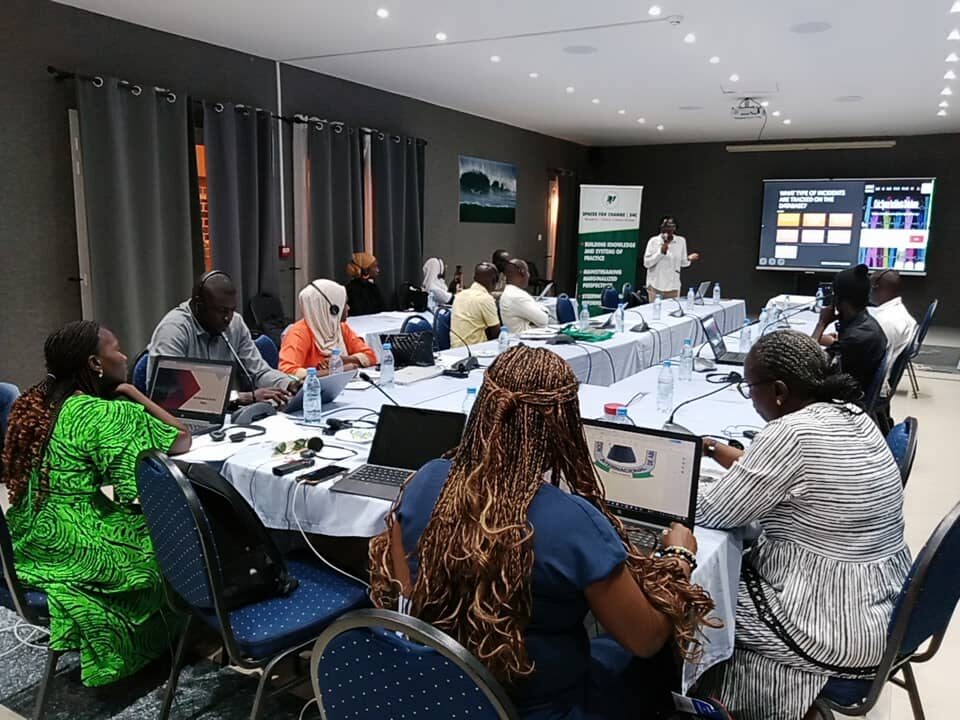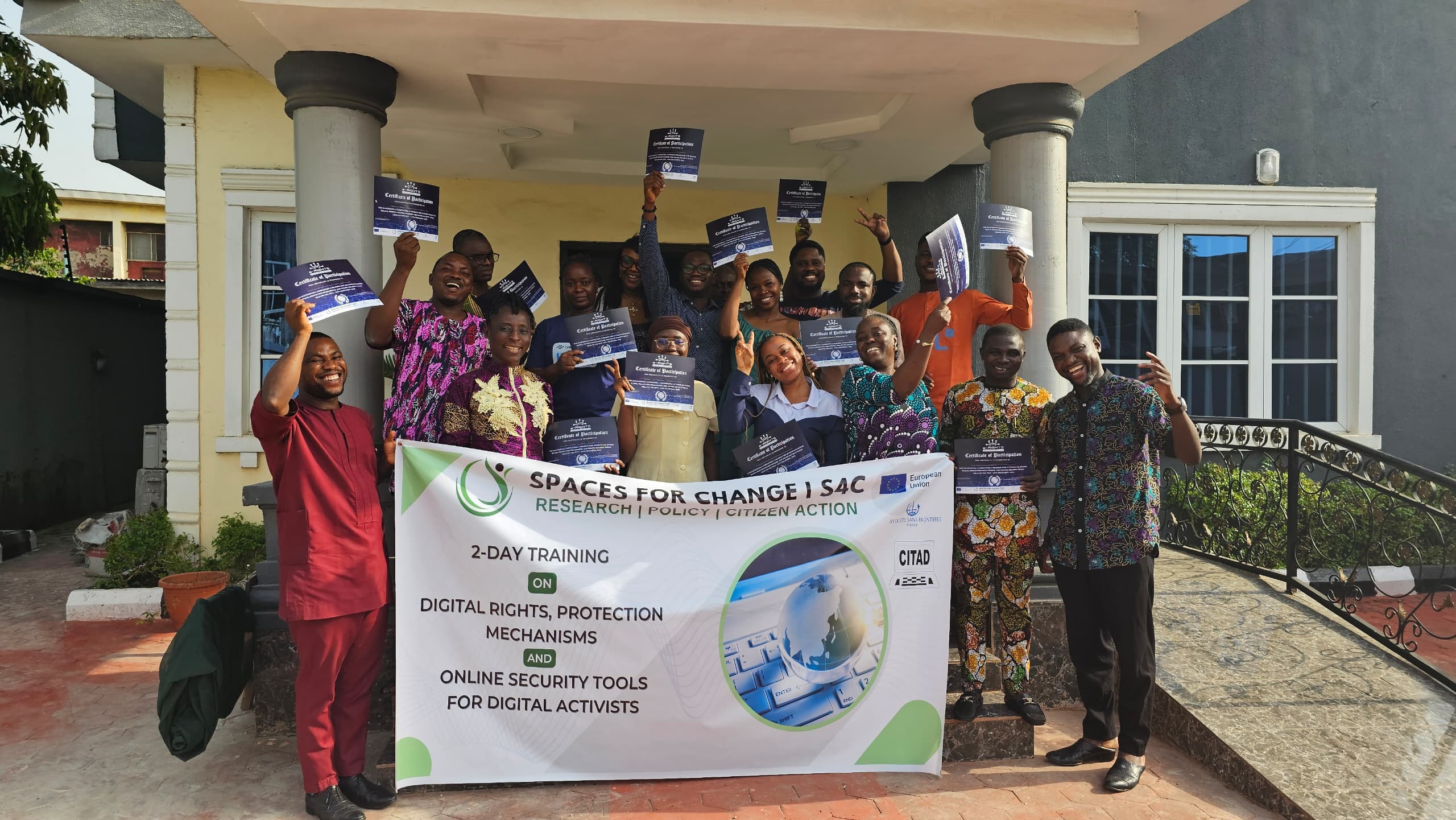
16 civil society and media organizations in Senegal participated in Spaces for Change’s | S4C’s two-day Digital Security Clinic (DSC) held in Dakar, Senegal, on December 6-7, 2023, under the auspices of the Civic Space Resource Hub (CSR-Hub) for West Africa Project. In the wake of internet disruptions and network shutdowns following the nationwide demonstrations that have become commonplace in the nation, the DSC equipped civic actors with the digital tools and skills needed to navigate the incessant digital closures limiting their ability to speak, organize, associate, and assemble freely, both online and offline.

Under the e-RIGHTS project, a collaborative campaign between S4C, Avocats Sans Frontières (Lawyers without Borders, France), and the Centre for Information Technology and Development (CITAD), with support from the European Union Commission, another two-day training on “Digital Rights, Protection Mechanisms, and Online Security Tools” held in Lagos, on December 13–14, enhanced digital rights awareness and capacities of 25 civic actors comprising activists, bloggers, influencers, and journalists from across Nigeria. The digital rights security training equipped them with the knowledge of digital rights and how to defend themselves from online harms associated with activism in restricted environments where the civic space is constrained.
At both convenings, participants learned about the intersection between human rights and internet freedoms. A deep dive into sensitive methods of advocacy and accountability campaigning techniques like whistleblowing and investigative journalism, deepened their understanding of courageous ways of holding governments and corporations accountable, the risks associated with such undertakings, and how to overcome them. The session focusing on social protection mechanisms (SPM) assuaged fears regarding where to find viable resources and safe corridors to protect human rights defenders and their families should they run into trouble.
Dedicated sessions on data protection laws in Senegal and Nigeria exposed participants to laws that afford citizens legal protection against privacy breaches and arbitrary surveillance operations. They also identified gaps within the laws where advocates can begin to clamour for reform. Adapting lessons from Nigeria to the Senegalese context, the interactive sessions delved deeper into the exploration of opportunities for legislative engagement and policy-making. Civil society participation in the process of rule-making can help ensure that regulations formulated and security laws passed align my democratic and human rights principles.
Another notable point raised is the effect of language on the use of technological devices. Emerging technological tools and platforms—including social networking sites—tend to be designed with English speakers in mind. This means that non-English speakers often sign on, accept certain terms and conditions, and release personal information without properly understanding the details and the legal implications of apps and technologies they are using because so much is lost in translation.
In Senegal, the Clinic wrapped up with practical exercises that walked civic actors through internet tools and resources they can utilize to enhance online freedoms before, during, and after the elections. In Nigeria, the closing exercises focused on how to use an array of encryption tools and fact-checking techniques for countering mis/disinformation, hacking, phishing, malware attacks, cyber-bulling and intrusive surveillance.



